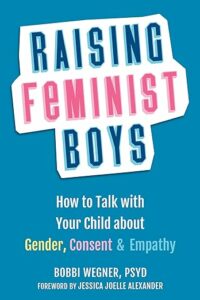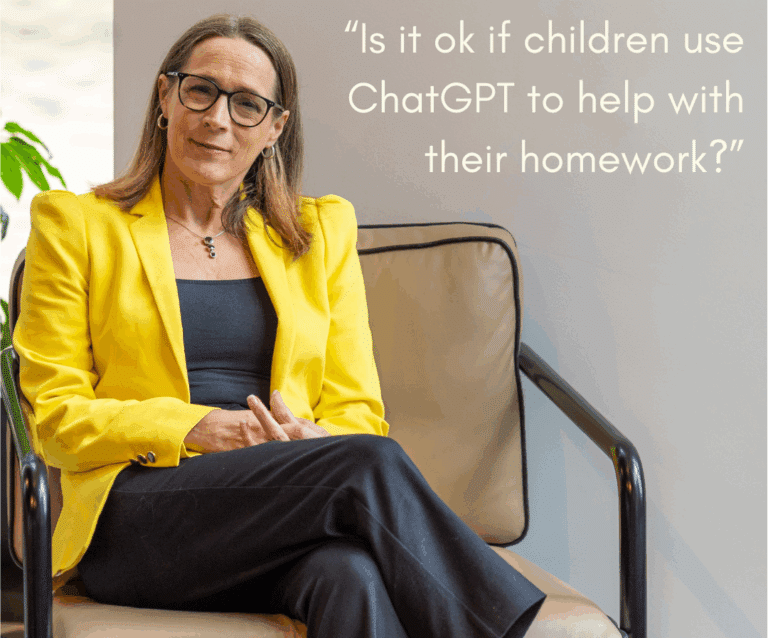Teaching boys about consent
Like many parents, I was shocked by recent revelations about sexual violence and harassment in UK schools. The tragic killing of Sarah Everard opened the floodgates for women to talk about not feeling safe. As an adult woman, taking precautions to protect myself against attack is a routine part of my life. But when girls started talking about a “rape culture” in schools and 10% of England’s schools were named in allegations on the Everyone’s Invited website, I was horrified.
What has gone so wrong in how we are teaching boys about consent? How did sexual harassment become so normalised among teens? 90% of girls reported that being sent unwanted explicit pictures or videos was a routine part of their lives.
Having personally experienced stereotyping, sexism and assault, it really matters to me that the next generation is empowered to expect (and demand) better. As the parent of teenage boys, it really matters to me to raise young men who don’t perpetuate this behaviour. Trying to help my sons see the world from a female perspective is something I have grappled with – and not always succeeded in. So, what is it that we parents of boys need to do differently?

This is a book with huge ambitions for affecting social change by educating our sons about male privilege, allyship and sexism. It’s full of great ideas. But the ground it covers is also vast and it is hard to take it all in. What this book definitely will do, however, is spur you on and give you the confidence to jump into conversations with your boys. And that’s a very valuable contribution indeed.
To bring a bit of focus specifically on teaching boys about consent, I have picked out the ideas in Raising Feminist Boys that I think are the most relevant for parents wanting to talk about consent and blended them with my own thoughts. This isn’t a perfect guide. But I offer it to you as a starting point to help you start some really important discussions with your sons.
Make a commitment
A lot of us are super-uncomfortable talking directly about sex and avoid it if we can. (If that’s you, maybe start by reading this guide: Talking to children about sex, bodies and relationships). But if parents aren’t prepared to broach the subject, how on earth can we expect our boys to be able to talk about consent with their future partners? Above all, consent is about communication.
As a parent, it’s easy to reassure ourselves that our own sons are one of the “good boys”. Our own sons simply wouldn’t behave badly – it’s other people’s sons that are the problem. But just look at the numbers – 15% of teenagers admit to sharing a sexual image of someone non-consensually. That’s a lot of parents with their heads in the sand! All teenagers make mistakes – but they are far more likely to get it right if they have had clear guidance home.
Teaching boys about consent is not about sitting them down and running through a lecture. Use events around you as a natural launchpad for discussing these issues. It might be family events, items on the news, a character in a film or a plotline in a soap opera – these are all great ways to start open and curious conversations that raise tricky issues in a safe context and help you gauge what your son already knows and (most importantly) what he thinks.
Start early
Talking to children about bodies and relationships when they are young makes it much easier to discuss the trickier details when they get older. Not talking about these issues sends out a powerful message to your child that certain topics are not to be mentioned, making it much harder to talk openly about them later.
Young children need to know about consent in order to keep themselves safe and behave appropriately to each other. Young children need to understand what counts as appropriate or inappropriate behaviour, which parts of their bodies are private and what to do if something makes them uncomfortable. (Check out the NSPCC’s fantastic PANTS campaign for brilliant age-appropriate ideas and materials on this).
Teaching boys about consent involves putting respectful boundaries around touch in everyday life. We can help younger boys think about consent in friendships by encouraging them to think about other children’s point of view. And we can model consent in our own behaviour (e.g. by stopping tickling him when he asks us to and by not forcing him to give Grandma a hug if he doesn’t want to).
Combat toxic masculinity
By the age of ten, many of children’s views on gender are already formed, so it’s important to challenge gender stereotypes from the start. From the moment they are born, boys receive messages about masculinity and what it means to ‘be a man’. Unpick many of those messages and they often prioritise dominance and strength. As parents, we all have a role to play in reinforcing the value of honesty and gentleness and a far more nuanced understanding of what male leadership might look like. At 5 years old, boys might not seem to be listening, but it is essential that we keep trying. Being straitjacketed into one version of masculinity is damaging all round.
And once they are tipping into their second decade, it’s vital we continue that conversation by talking about pornography and being clear that what they might view there is not the same as what does (or should) happen in real life. (See Talking to teenagers about porn for more on this).
| Want more details? Watch our 10-minute video on Talking to teens about difficult topics. |
Sexism isn’t funny
If children are exposed routinely to sexual comments and jokes about girls/women, the attitudes behind these comments become normalised. We need to watch our words and call out inappropriate comments. There are obvious ways to do this (e.g. challenging grandad if he makes a sexist joke) and less obvious ways (e.g. noticing when we comment about the female newsreader’s appearance).
One of the strongest factors correlated with thinking it’s okay to ask girls for sexy or nude photos is having a father who has made comments or jokes of a sexual nature about women. (Raising Feminist Boys)
If we are prepared to call out sexism and inappropriate behaviour, our sons are much more likely to call each other out. The actions of a minority of boys who commit harassment and assault become a culture of harassment and assault when the majority do not take a stand.
Key messages
First of all, what is consent?
- Consent is an agreement between participants to engage in sexual activity
- Consent is freely given (not coerced) by someone who is fully able to make that choice
- Consent can be taken back at any time
- Consent is specific – consenting to one thing (e.g. getting naked) does not mean you have consented to anything else (e.g. having penetrative sex)
- Consent should be informed (i.e. based on accurate information)
Specifically, it is NOT okay to:
- engage in sexual activity with someone who is too intoxicated to give consent
- pressurise someone into sexual activity (that means not continuing to ask them after they have said No)
- assume consent (just because someone doesn’t physically resist doesn’t mean it isn’t assault)
In the end, teaching boys about consent isn’t just about sexual activity. It’s about helping them understand what a healthy relationship looks like and how to be part of a loving and respectful dynamic.
And that’s something we would all wish for all our young people.
This is not a sponsored post, I was not paid to write it. However, I did receive a free copy of Raising Feminist Boys and this post does contain affiliate links to Amazon (see Disclosure Notice for full details on how I work with advertisers and brands).






